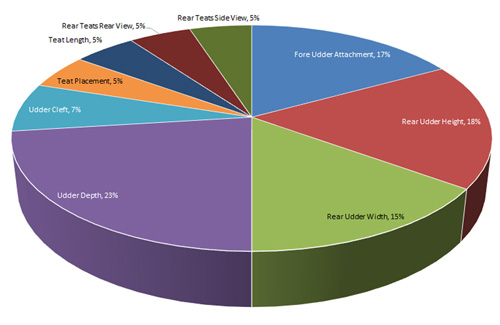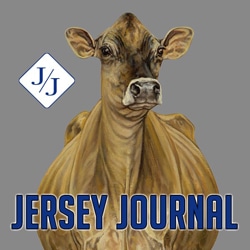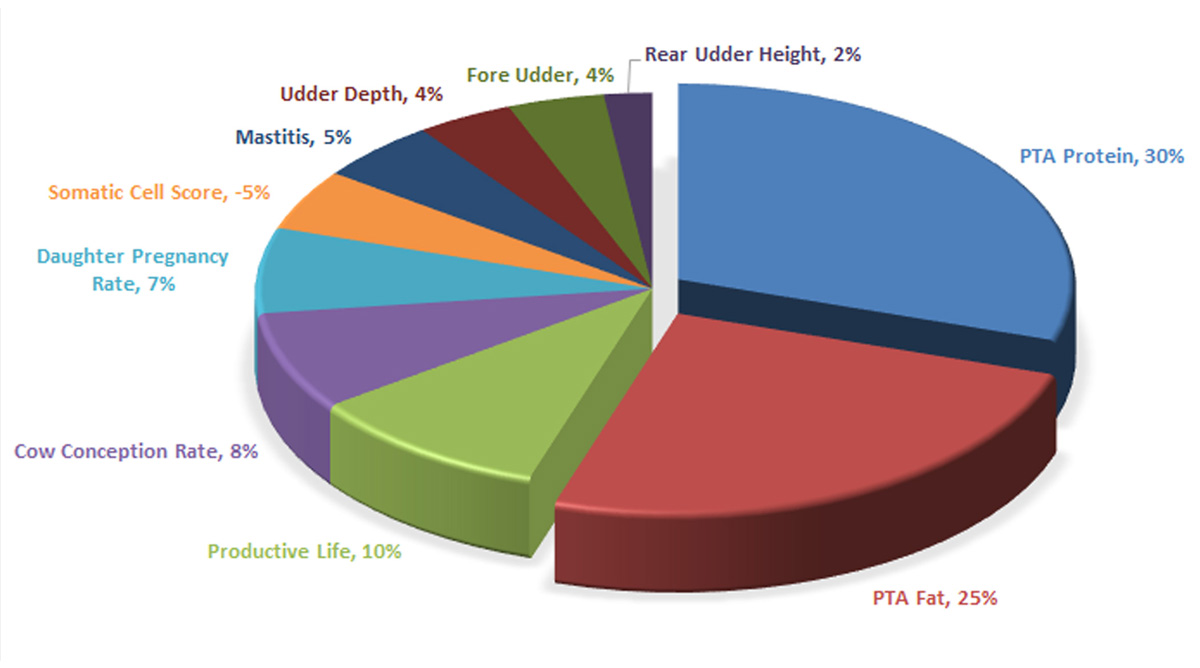2023 Jersey Performance Index Announced
Updates to Jersey Performance Index and Jersey Udder Index (JUI) authorized by the American Jersey Cattle Association (AJCA) Board of Directors will be implemented with the December 2023 official Council on Dairy Cattle Breeding (CDCB)-AJCA genetic evaluations.
“JPI2023 is a strategy to identify high-performing, healthy, and long-lived Jersey cows, while driving the breed to higher protein production,” AJCA Executive Secretary Neal Smith said. “The new JUI index follows the same strategy as the performance-based JPI2023 index as it rewards high-performing, long-lived cows with durable udders. These two indexes are a positive step for the breed.”
The new weights of JPI2023 were approved by the Board of Directors of the AJCA at a special meeting on September 28.
JPI Advisory Committee
In 2021, a committee was established to monitor the genetic progress of the Jersey breed, advise on development of JPI and make recommendations to the AJCA Breed Improvement Committee.
The committee consists of three board members, three Jersey breeders, two A.I. representatives and two geneticists. Cari Wolfe, retired genetics and research coordinator for the association and now John Metzger, genetic consultant, have led the committee. Committee members include AJCA board members Joel Albright, Willard, Ohio, Cornell Kasbergen, Tulare, Calif., and Donna Phillips, Newton, Wis.; Michael Hurst, Waynesville, Ohio; and Herby Lutz, Chester, S.C., from the A.I. industry; and Tom Seals Beaver, Ore., Walter Graves, Dundas, Ill., and Ethan Haywood, Hastings, Mich., as the breed representatives. Dr. Kent Weigel and John Metzger represented the geneticists.
Breaking Down JPI2023
JPI2023 will have 55% of the emphasis on production (+6% from the previous version), 15% on fertility, 10% on survival traits (+2% from previous version), 10% on udder traits, and 10% on health traits. Traits included and their weights are PTA Protein, 30%; PTA Fat, 25%; Productive Life, 10%; Cow Conception Rate, 8%; Daughter Pregnancy Rate, 7%; Somatic Cell Score, -5%; Mastitis Resistance, 5%; Udder Depth, 4%; Fore Udder, 4%; and Rear Udder Height, 2%.
The inclusion of udder depth, fore udder and rear udder height traits to the JPI2023 formula are a direct result of the findings from the Risk of Culling study done by Dr. Kent Weigel and associates at the University of Wisconsin-Madison in 2022.
With the new formula emphasis has been placed on increasing production and longer herd life while maintaining strongly attached udders. Some rescaling and reranking is to be expected in December as the focus on herd health with mastitis, components and udder depth has been increased.

Jersey Udder Index Updates
The AJCA board of directors also approved a new JUI formula at the September meeting.
The formula is designed as a standalone publishable index for the first time.
Weightings in JUI will change to 23% udder depth, 18% rear udder height, 17% fore udder; 15% rear udder width, 7% udder cleft and 5% each for teat placement, rear teat placement rear view, rear teat placement side view and teat length.
Additionally, emphasis was shifted in the JUI formula by making udder cleft, udder depth, teat placement, rear teat placement rear view, rear teat placement side view and teat length two-way traits with an intermediate optimum. Fore udder, rear udder height and width will now be capped at maximum value.
Summary
Jersey Performance Index is a breed-specific selection tool that has been continually reviewed and updated based on sound science and relative to current economic conditions since 1998. Jersey Udder IndexTM was added in 2015 to the formula.
“The update to JPI reiterates the importance of the index to continuing breed improvement,” said John Metzger. “It is a management tool that will assist the dairy breeder in making high-producing, long-lived, and trouble free cows in their herd.”
For more information on Jersey genetics, visit the Green Book on USJersey.com or contact John Metzger at jmetzger@USJersey.com.




